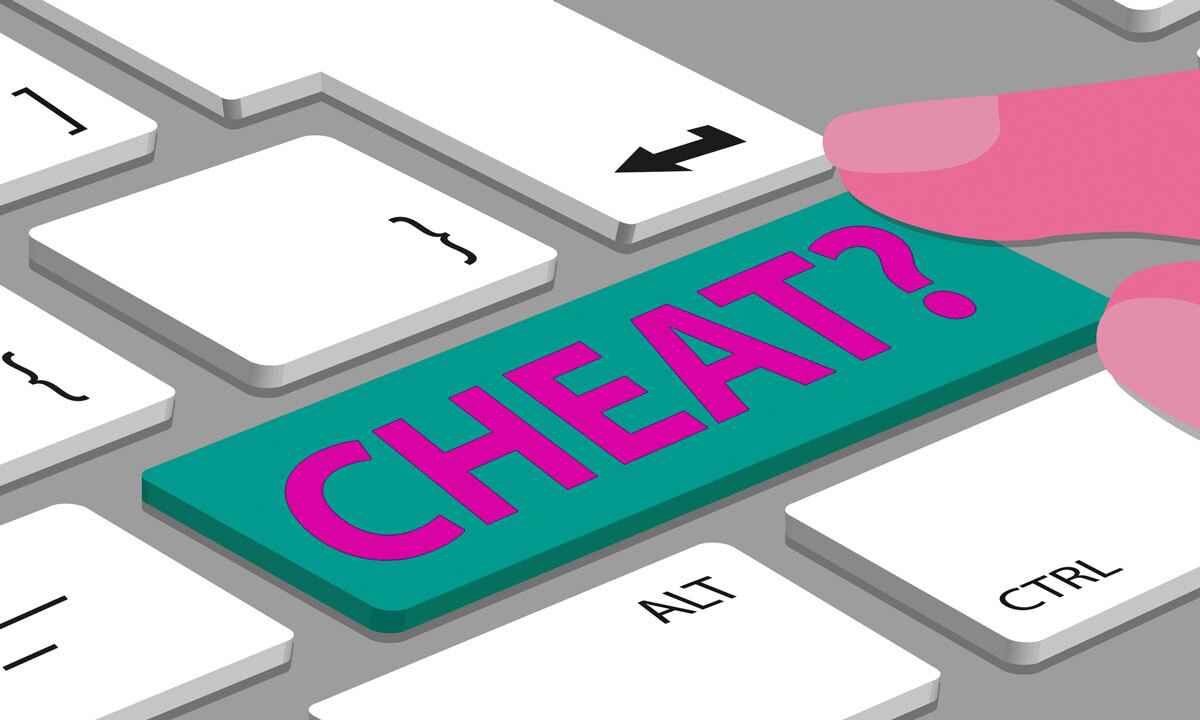
Don’t Be a Cheater
“Our reputation means the world to us, and we would never cheat”, lied Jake Runyan, a fisherman at a tournament. If you haven’t seen the video of Jake Runyan and Chase Cominsky at a professional fishing tournament in Ohio, you should. The tournament director cut open the winning fish and found egg-shaped weights of more than 7 pounds that would have clinched the championship. They could have won $28,000 on a side pot ($400 per entry of 70 fishermen), and along with cash, top prizes can include expensive fishing boats and professional sponsorship. Apparently, lying is not uncommon. Lie-detector tests have become commonplace for winners at fishing tournaments with large payouts. Although being caught red-handed, Runyan and Cominsky did not immediately respond to the accusation in the videos and have not publicly commented.
And in professional chess competitions, Hans Niemann has been accused of cheating by world champion Magnus Carlsen. Niemann has admitted cheating in informal games when he was aged 12 and 16, but denies doing so in competitive games. Now Chess.com, a site on which most of the world’s top players compete, has done an investigation into Niemann’s games on the site, including for cash prizes. Chess.com said there were “certain aspects” of the game that were “suspicious”, including Niemann’s explanation of the game afterward. In Niemann’s defense, a statistical analysis of Niemann’s over-the-board games by Prof Kenneth Regan, widely regarded as the world’s leading expert on cheating in chess, found no evidence he had cheated. In March 2020 alone, Chess.com closed nearly 10,000 accounts for fair play violations.
Why do people cheat? Because they want to win. There is a cliché that “winning isn’t everything, it’s the only thing.” The difference between first and second place is often a significant amount of money and fame. For some people, the risk of getting caught and being labeled a cheater is worth the money and glory that being best brings. Some people believe that cheating is the only way to get ahead.
According to the “Handbook of Sports Psychology,” studies have demonstrated relationships between task and ego orientations with sportsmanship and moral functioning. There is a difference in how athletes think of themselves and why they compete. Task-oriented athletes focus on hard work and self-development, while ego-oriented athletes are focused on being better than everyone else. Compared to high task-oriented athletes, high ego-oriented athletes have lower sportsmanship, more self-reported cheating, and endorsement of cheating. Ego orientation can predict lower moral functioning.
Doesn’t everyone cheat from time to time? According to the Educational Testing Service, between 75 and 98% of college students admitted to having cheated in high school. Cheating increases when rules are ambiguous and when strict supervision is lacking. Although many people will cheat a little, only a few will cheat to the maximum degree possible.
The idea that cheaters feel guilty after engaging in unethical behavior simply isn’t true. In a BBC interview, Lance Armstrong, the disgraced cyclist, said that if it was still 1995, he would “probably do it again.” Over six experiments, unethical behaviors not only failed to trigger negative affect, but they triggered positive affect. Those types of behaviors can lead to a “cheater’s high.”
Most people would agree that cheating is morally wrong. One study by researcher Lisa Shu, demonstrated that when people think they can get away with cheating, and they also think it would be worthwhile to cheat, they often do so. One could say that moral illness is a condition in which one has so abused their concept of right and wrong for so long that they rationalize acts of destruction without feelings of remorse. Little rationalizations over a long period can grow to become a culture of moral illness.
Self-justification often occurs when people make “immoral” decisions. Individuals rationalize unethical decisions and behaviors to maintain a positive view of themselves. People want to consider themselves to be honest. People don’t cheat as much as they can get away with. They cheat up to the point at which they can continue to believe they are good people.
Once a cheater, always a cheater? Amy Novotney author of “Beat the Cheat” (June 2011, Monitor on Psychology, Vol 42, No.6) indicates that cheating may be associated with dishonesty later in life. “Students who plagiarized in college reported that they viewed themselves as more likely to break rules in the workplace, cheat on spouses and engage in illegal activities . . . High school cheaters are also twice as likely to lie to or deceive their boss and one-and-a-half times more likely to lie to a significant other or cheat on their taxes.”
Why not cheat? Because we care about being people of honesty and integrity. Cheating may cost you more than you think. Happiness depends on your willingness to live an authentic life where your behavior lines up with your values. If you see yourself as an honest person, you’ll be happiest when your behavior is congruent with this belief.
